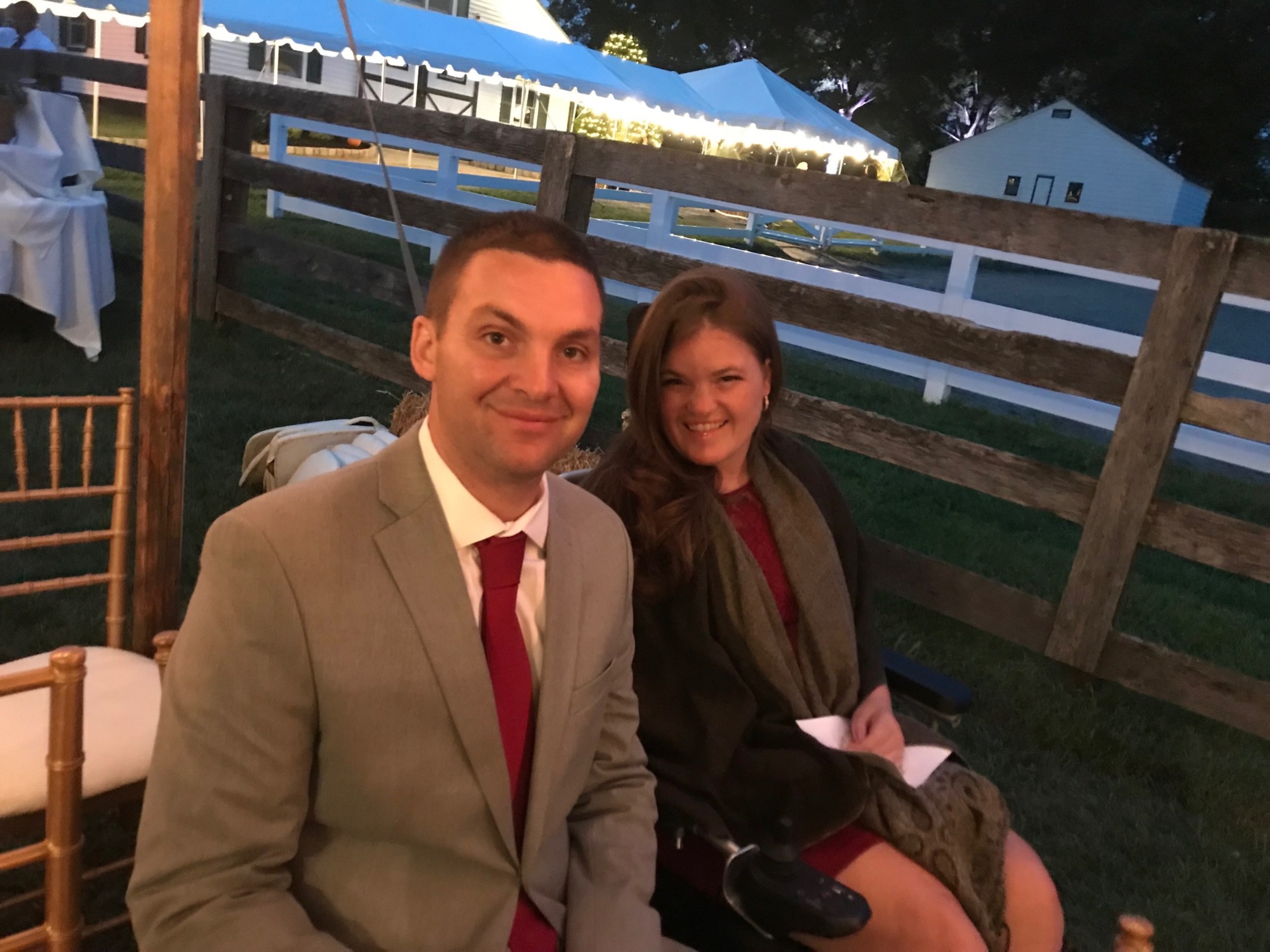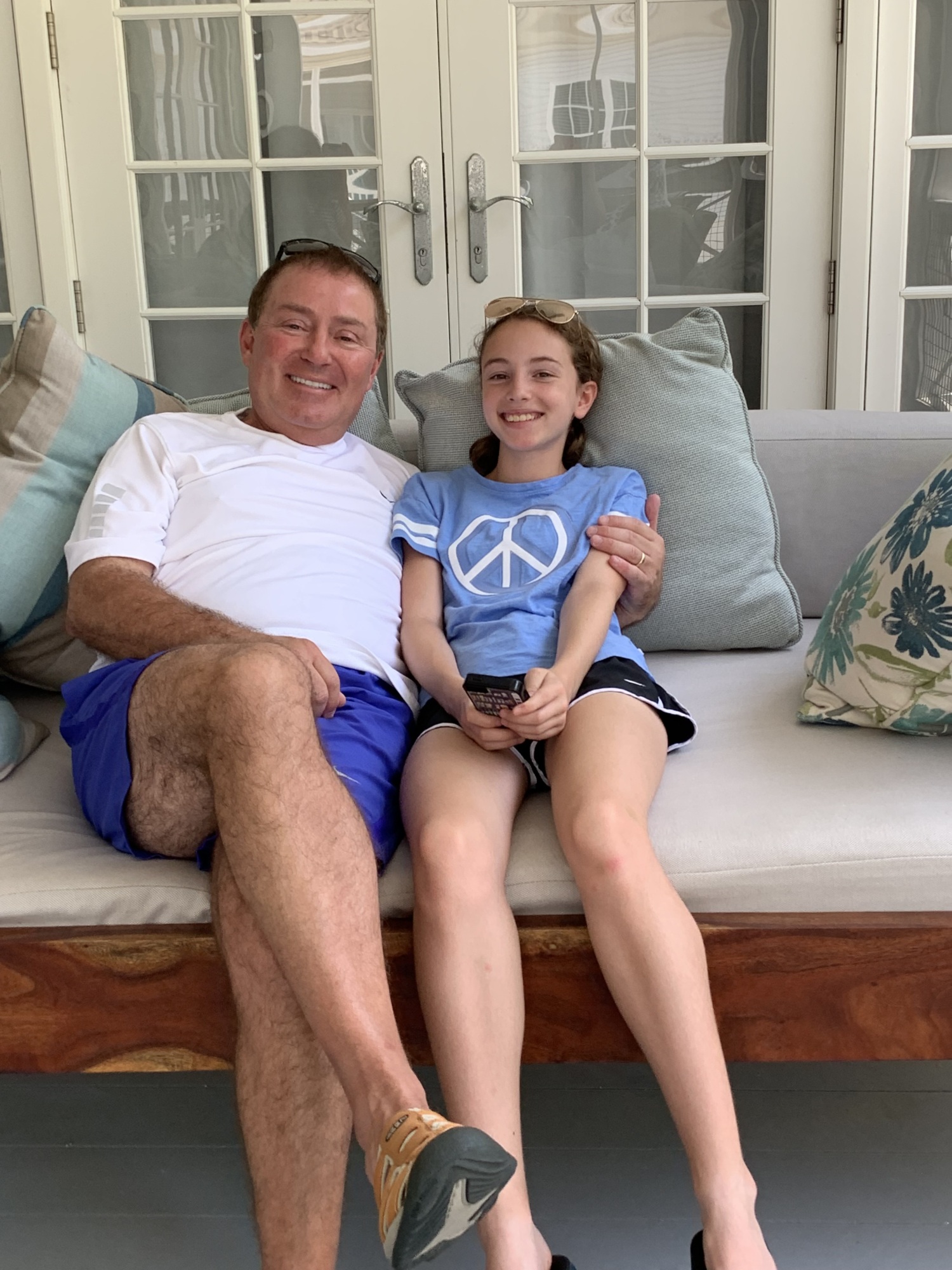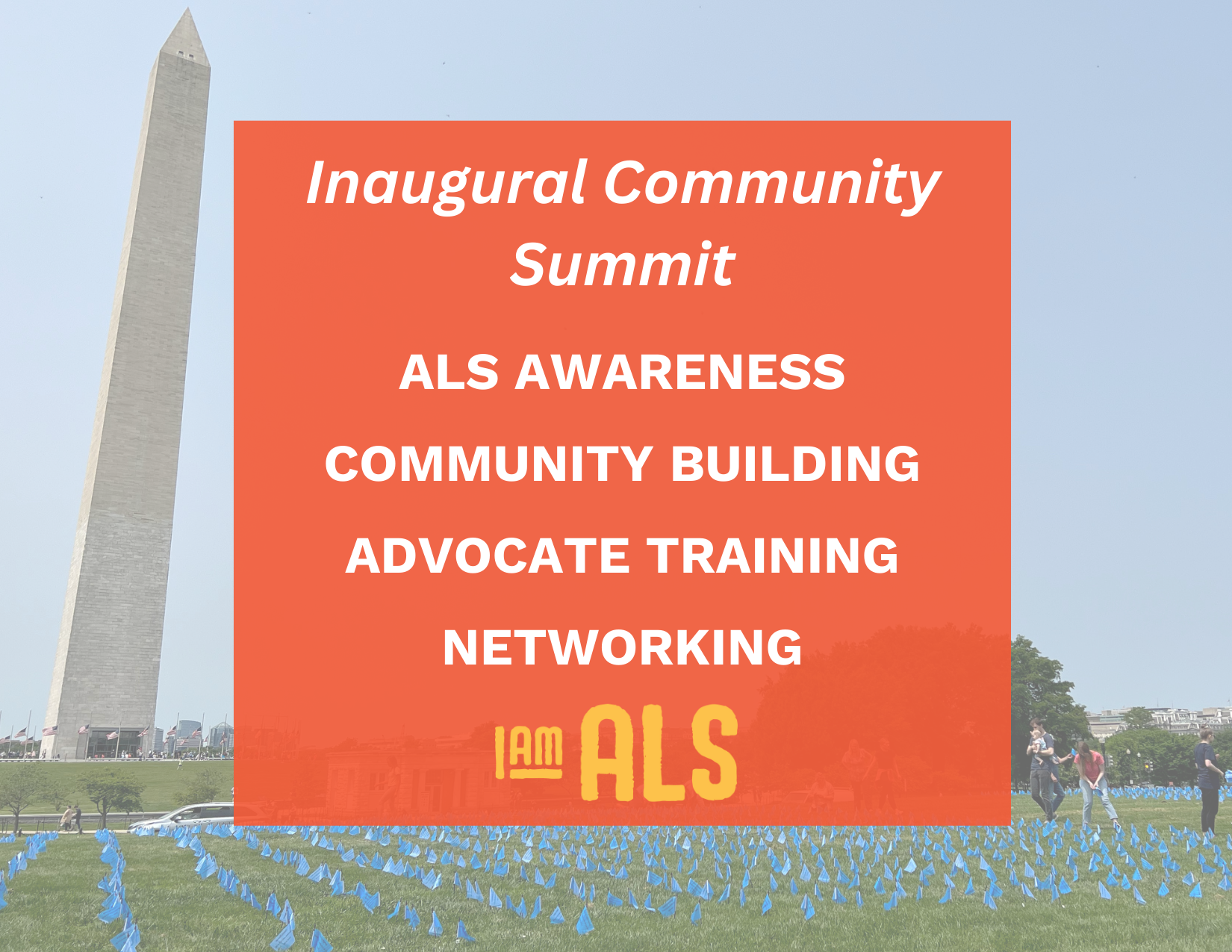
I am Kaitlin Swanson, Psy.D
living with ALS
New Jersey
The day after my 29th birthday, a month before my wedding, I was diagnosed with Amyotrophic Lateral Sclerosis (ALS), and everything changed.
“When you’ve done everything you can do, that’s when God will step in and do what you can’t do.” 2 Corinthians 12:10
The year I turned 28, I got engaged to a wonderful man and completed my doctorate in psychology. Everything that I had dreamed for myself was coming true. The day after my 29th birthday, a month before my wedding, I was diagnosed with Amyotrophic Lateral Sclerosis (ALS), and everything changed.
I was always active. Volleyball, kickboxing, yoga, and soccer were all great but I really loved to run. I ran with my mom, my sister, brother, father, and eventually my fiancé; and it provided time outdoors to get out all of that extra energy and just enjoy God’s creation. In January 2016, I started to have difficulty running. Running was always easy and that winter suddenly it wasn’t anymore. I didn’t understand how it could change. I couldn’t seem to stop my own impact, my feet hit the ground too hard, and it felt like I was continuously off balance. Then I started to actually fall. In the beginning I could catch myself, and then I couldn’t anymore. People kept telling me to just shake it off or that it was all in my head. I hoped it was but couldn’t seem to fix it on my own. So I went to the foot doctor. That seemed like the logical starting place since my feet appeared to be failing me.
Around the same time, I started falling from a standing position. When I went to the foot doctor, she asked about other falls and recommended that I see a physical therapist. Unfortunately, as the physical therapist worked with me, instead of getting more balanced I seemed to be getting worse. I went from not being able to run to having difficulty just being able to walk. As the drills showed less progress and more digression, my physical therapist recommended I make an appointment with a neurologist.
The first neurologist that I met with was brusque but relatively informative. During my initial appointment, he did a sensory checkup that I would soon learn would be done each time I met with a new doctor. This consists of checking my reflexes, ability to track with my eyes and hands, and an assessment of my sensation. This particular doctor pulled his keys out of his pocket and used those to scratch the bottom of my feet to see if I could feel it. I could. It hurt. When he then pulled a safety pin out of his pocket, to see if I could feel myself being poked, I tried to jump off of the table. Meeting with him was stressful. He was not in the business of giving hope. Nevertheless, he scheduled a series of MRIs.
During that time, my strength seemed to be getting worse, my balance increasingly off-kilter, and my walking more noticeably impaired. My mother attended all of the appointments with me, and after our first negative experience, my sister attended as well. Many of the doctors made jokes about how many of us were in the room. As psychologists, all three of us knew that under this type of pressure no one person could appropriately report the details that the professionals were saying. When they joked about my support system, I agreed and said that I brought a team of therapists with me which, luckily, I had. God gives all comfort and I know that “my God will supply every need” according to Philippians 4:19. That doesn’t mean that I don’t need reminders. For me, those reminders often came from my family. They had the ability to shore me up, help me to walk when I couldn’t, and help me to believe when I felt empty. Later, as I prayed to see God more, that comfort would come from even more people; but it always came from my family.
As my progression of negative symptoms accelerated, my family and I felt that we needed someone who could be more available and responsive to our concerns. In one of a series of blessings, a family friend reached out to a friend of hers, who was also a neurologist. Although 30 minutes farther away, this neurologist was much more responsive, empathic, and invested in explaining the minutia of each neurological test as well as all of the potential implications. Through her, over a month and a half, I ended up having an EMG, two spinal taps, and a spinal and cerebral test to look for an AVM which resulted in a week-long inpatient stay at Columbia University Medical Center. It was there, when an unknown doctor walked into the hospital room I shared with a stranger and told the room I was diagnosed with ALS. This doctor explained that there is no cure, no treatment, and that, if my diagnosis is correct, then there is no hope.
Each time we went to an appointment, we had to be reminded that “we live by faith, not by sight” 2 Corinthians 5:7. On June 20, 2017, my diagnosis was confirmed. A well-recognized, highly empathic, expert in the field told me that, given my atypical characteristics, and rapid progression, he expected that within three months I would need to use breathing and feeding tubes. He stated that, while most patients with ALS pass away within 2 to 5 years, he expected that I had, at most, a year from the date of diagnosis. He said that I could expect my speech to go away, to lose my ability to chew and swallow on my own and that eventually, I will lose the ability to breathe.
“Don’t worry about anything, instead, pray about everything. Tell God what you need, and thank Him for all He has done.” Philippians 4:6-8. From a very realistic perspective, I need to work on conserving energy and appropriately using the energy that I have on a day-to-day basis. That said, I love to work. I spent years training for my career and my enjoyment of it did not change because of this diagnosis or these symptoms. I know that I may not always be able to work and that maybe what I do, or the ways that I do it, will have to change, but my goal is to work as hard as I can for as long as I am able to. Jerry West once said, “You can’t get much done in life if you only work on the days when you felt good” (Maxwell, J. C, 2011, p.137). That resonates with me. As tired as I often am, I know that in our world a lot of people are tired. I am often reminded that each day I have is an opportunity to keep working and to let myself be used by God. So I pray for opportunities and reminders to be able to pray for other people like I know they are praying for me.
To anyone reading this, my prayer for you is, “May the God of hope fill you with all joy and peace as you trust in Him, so that you may overflow with hope by the power of the Holy Spirit” Romans 15:13. Two separate, highly known medical facilities diagnosed me with ALS. I was told that I had one to five years to live and I watched myself lose the ability to run, walk, cut my food, dress myself, bathe myself, and speak in the way that I have spoken my entire life. I have had to adapt a lot and along the way we have seen things that we can do. My brother explained it best with a story that he heard on the radio. ‘It was snowing and the custodian began shoveling the steps to the school. A student in a wheelchair came out and asked him when he would shovel the ramp so that she could go to school. He said that he had to do the steps first so the majority of kids could get in. She said if he did the ramp first then everyone could get in.’ To generate change society needs to learn that making things better for everyone includes each individual. We need to share our struggle in order to help facilitate physical adaptations to mitigate limitations.
My goal is to use every negative experience as an opportunity to see how to better help the system and to make accessibility the first thought rather than the second. In June of 2021, it will be 5 years since I was diagnosed with the death sentence that is ALS. Since most people with ALS pass away within 2 to 5 years of diagnosis this is yet another blessing amidst my daily miracles. Miraculously, I am still able to type, communicate, and work full time as a psychologist. It is a daily testament each time God helps me to move and to breathe. As I have become progressively more paralyzed, we have seen great strides in ALS research and I believe we will one day find a cure. Together we can continue to raise funds and provide tools to help others function to the best of their abilities until that cure arrives.

